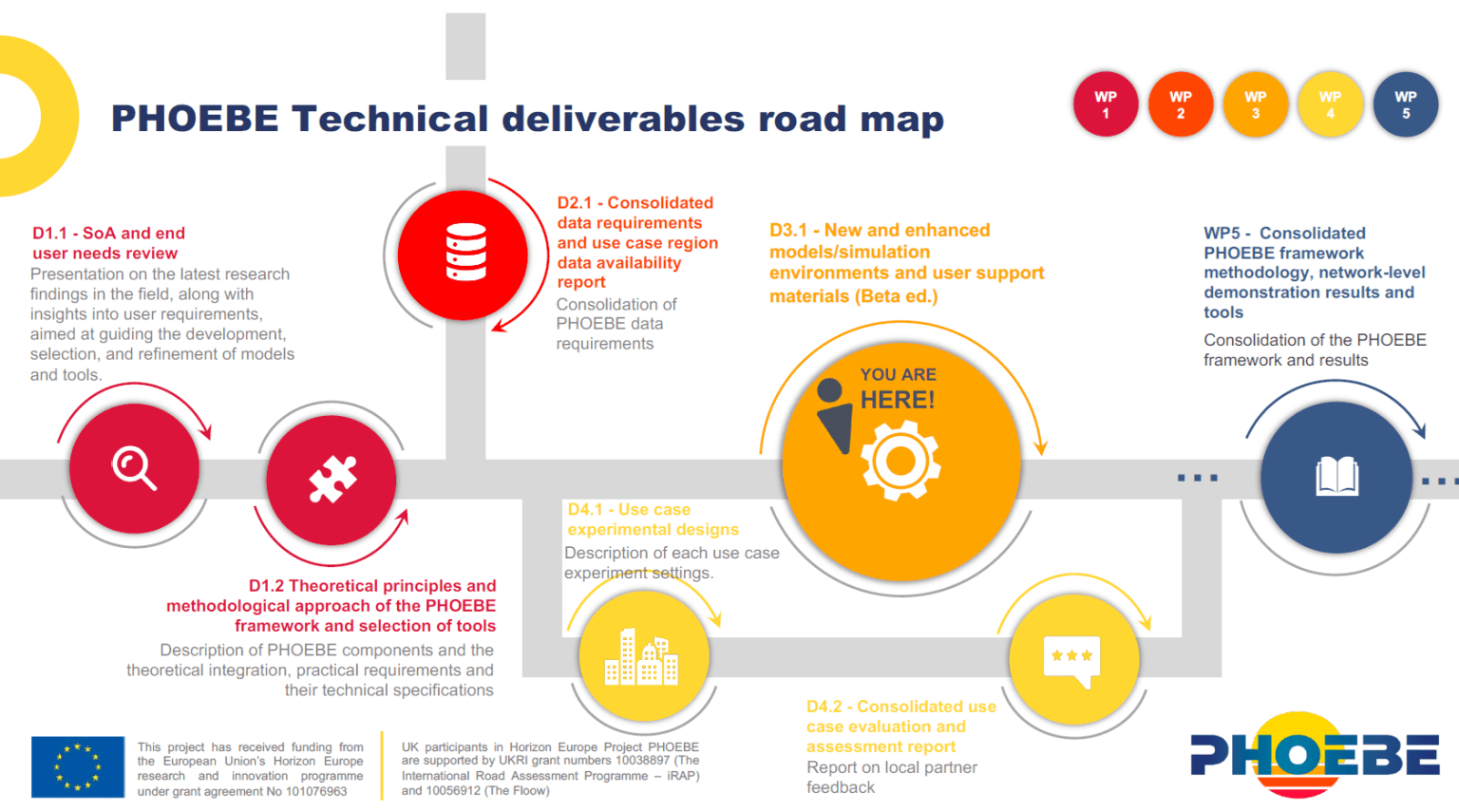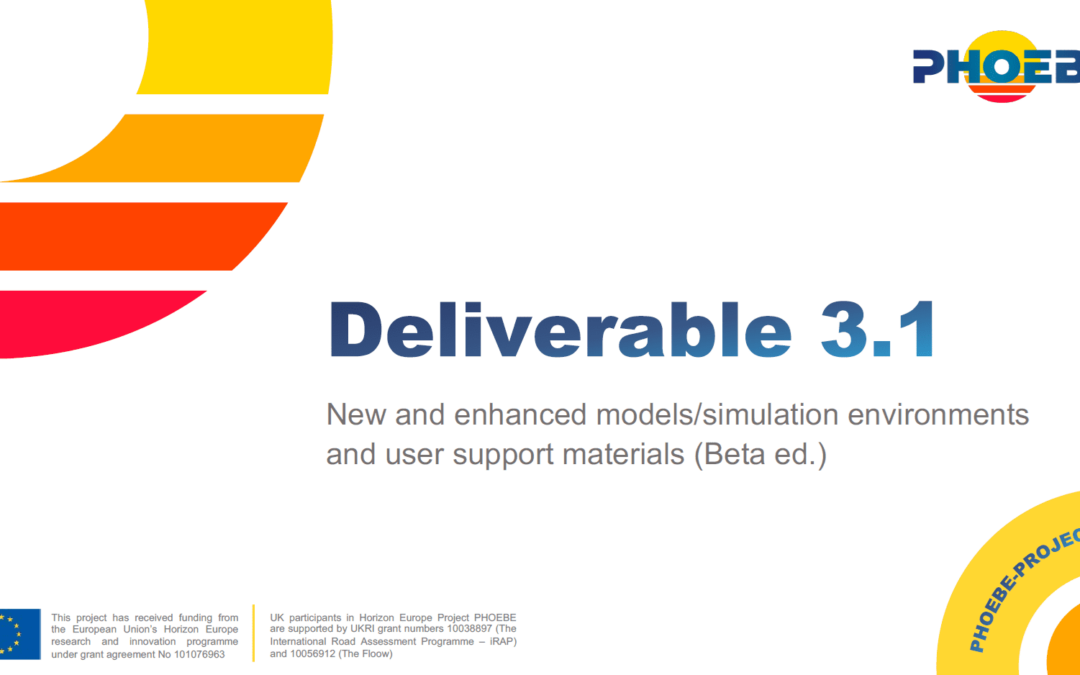The PHOEBE Project has reached a significant milestone with the completion of its deliverable report ‘New and Enhanced Models/Simulation Environments and User Support Materials (Beta ed.)‘. Development has highlighted vulnerable road users as the cornerstone of safe urban environments, numerous barriers to properly evaluating their safety, and the significance of data.
The EU-funded ‘Predictive Approaches for Safer Urban Environment’ (PHOEBE) Project aims to increase the road safety of vulnerable road users, especially those who use active mobility and e-scooters. It is building on the strengths of iRAP’s road safety assessment tools and AIMSUN’s simulation and Artificial Intelligence to deliver harmonised, integrated and world-leading safety prediction tools that take account of gender, age and ability levels in providing for future mobility.
The Beta report is an interim deliverable that explores the current stage of technological development. It captures the preparation and development of the enhanced models, simulation environments and user support materials ready for testing in the three PHOEBE pilot sites of Athens, Valencia and the West Midlands.
Specifically, it includes the preparation of several aspects for integration into the AIMSUN traffic simulation environment, including:
- Mode shift and induced demand models to facilitate dynamic outputs, reflecting fluctuations in traffic flow and speed.
- Human behavioural models to enhance the understanding of user interactions and decision-making processes.
- Road safety assessment model enhancements, including refined data segmentation and dynamic risk ratings based on variable speed and flows.
- Upgrades to the ‘AIMSUN Next’ simulation environment, aimed at improving simulation accuracy and realism.
- Integration procedures and strategies for representing behavioural changes and induced demand in simulation scenarios, highlighting the project’s commitment to addressing complex urban mobility challenges.
Amidst these advancements, two critical lessons have emerged:
Vulnerable Road Users (VRUs) Remain Central to Urban Safety:
It is firmly established that VRUs constitute the cornerstone of safety in urban environments. However, the PHOEBE project team has encountered numerous barriers in properly evaluating their safety. These obstacles range from the absence of dedicated data and the need to enhance models for these users to a lack of studies in specific fields. There is still much to be developed in the realm of VRU safety. PHOEBE’s role is to address the gaps in the project’s scope and highlight others for the road safety community.
Data Emerges as a Core Pillar:
Data is the backbone of the PHOEBE project, driving both model development and calibration/validation processes. However, navigating data complexities, including access, compliance, and processing, poses significant challenges. Project partners actively map data sources and develop guidelines to streamline data utilization within the framework, facilitating broader adoption and applicability.
A subsequent deliverable of the PHOEBE Project will present the complete documentation for each component and the integration protocols.


















